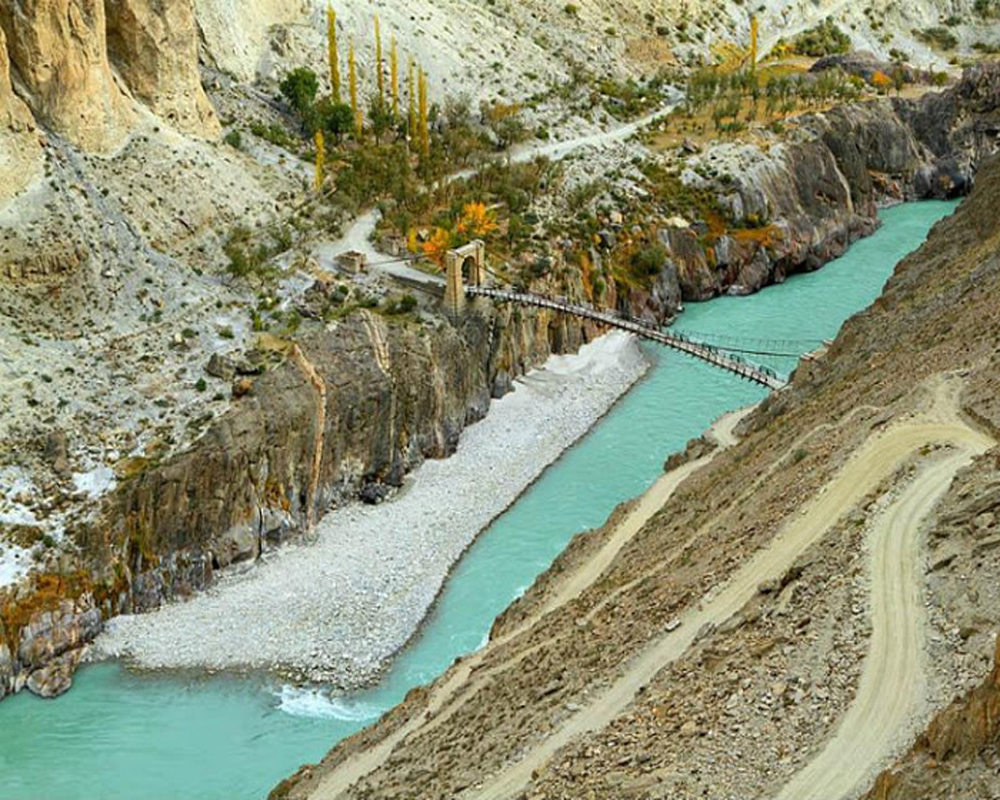 NEW DELHI, Apr 25: NEW DELHI, Apr 25:
Agencies
India has informed Pakistan of its decision to keep Indus Waters Treaty in abeyance with immediate effect, saying Pakistan has breached conditions of the treaty.
Sustained cross-border terrorism by Pakistan targeting Jammu and Kashmir impedes India’s rights under the Indus Waters Treaty, India’s Secretary of Water Resources Debashree Mukherjee said in a letter addressed to her Pakistani counterpart, Syed Ali Murtaza.
“The obligation to honour a treaty in good faith is fundamental to a treaty. However, what we have seen instead is sustained cross-border terrorism by Pakistan targeting the Indian Union Territory of Jammu and Kashmir,” the letter read.
India’s decision to suspend the decades-old treaty follows the killing of 26 people, mostly tourists, in a terror attack in Jammu and Kashmir’s Pahalgam on Tuesday.
“The resulting security uncertainties have directly impeded India’s full utilisation of its rights under the treaty,” the letter read.
The communication to Pakistan also highlighted “significantly altered population demographics, the need to accelerate the development of clean energy, and other changes” as reasons necessitating a re-assessment of the treaty’s obligations.
It also accused Pakistan of breaching the treaty by refusing to negotiate modifications, as required under Article XII(3).
“…apart from other breaches committed by it, Pakistan has refused to respond to India’s request to enter into negotiations as envisaged under the treaty and is thus in breach of the treaty,” the letter said.
“The Government of India has hereby decided that the Indus Waters Treaty 1960 will be held in abeyance with immediate effect,” it added.
On Wednesday, India announced a raft of measures against Pakistan, including the suspension of the Indus Waters Treaty, the expulsion of Pakistani military attaches and the immediate shutting down of the Attari land-transit post.
Pakistan has rejected India’s suspension of the treaty and said any measures to stop the flow of water “belonging to Pakistan” under the pact will be seen as an “act of war.
“Any attempt to stop or divert the flow of water belonging to Pakistan as per the Indus Waters Treaty and the usurpation of the rights of lower riparian will be considered as an act of war,” according to an official statement by Pakistan.
The Indus Waters Treaty, brokered by the World Bank, has governed the distribution and use of the Indus river and its tributaries between India and Pakistan since 1960.
The Indus river system comprises the main river, the Indus, and its tributaries. The Ravi, Beas, Sutlej, Jhelum and Chenab are its left-bank tributaries, while the Kabul river, a right-bank tributary, does not flow through Indian territory.
The Ravi, Beas, and Sutlej are collectively referred to as the eastern rivers, while the Indus, Jhelum, and Chenab are known as the western rivers. The water of this river system are crucial to both India and Pakistan.
At the time of Independence, the boundary demarcation between the two newly formed nations — India and Pakistan — cut through the Indus Basin, leaving India as the upper riparian and Pakistan as the lower riparian state.
Two key irrigation works — one at Madhopur on the Ravi and another at Ferozepur on the Sutlej — on which Punjab on Pakistan’s side was entirely dependent — ended up within the Indian territory.
This led to a dispute between the two countries over the utilisation of irrigation water from the existing infrastructure. Following negotiations facilitated by the International Bank for Reconstruction and Development (now part of the World Bank Group), the Indus Waters Treaty was signed in 1960.
Under the treaty, India was granted exclusive rights to the water of the eastern rivers– the Sutlej, Beas, and Ravi — amounting to an average annual flow of about 33 million acre-feet (MAF).
The water of the western rivers — the Indus, Jhelum and Chenab — amounting to an average annual flow of around 135 MAF, were largely allocated to Pakistan.
However, the treaty allowed India to utilise the water of the western rivers for domestic needs, non-consumptive uses, agriculture and hydroelectric power generation. |
